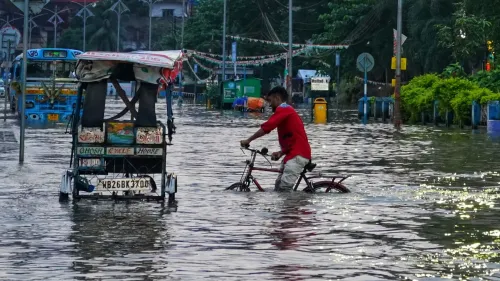
Will Taiwan’s non-life sector sustain profit surge beyond 2024?
The sector’s direct written premiums in 7M’24 climbed 11.4% YoY.
Taiwan’s non-life insurance sector’s recovery comes after a difficult 2022, during which insurers faced massive pandemic-related losses. However, AM Best cited improvements in capital strength, underwriting discipline, and operating profitability in the sector.
In 2023, the non-life insurance segment saw a sharp rebound in capital levels, with total shareholders’ equity more than doubling.
This was driven by capital injections, reserve releases, and organic earnings growth, although capital remains below pre-pandemic levels.
Operating profitability has also seen a notable improvement, with pre-tax earnings more than doubling in the first seven months of 2024. This has been supported by insurers’ efforts to strengthen underwriting practices and pass on higher reinsurance costs to policyholders.
The sector's growth momentum has continued into 2024, with direct premiums written (DPW) rising 11.4% year-on-year in July.
Growth has been particularly strong in voluntary motor, commercial fire, and engineering insurance. Offshore wind farm projects have fueled a 70% surge in engineering premiums, though a large portion of this risk is ceded to international reinsurers due to limited domestic capacity.
However, challenges remain. Taiwan’s insurers face relatively low investment yields compared to other regional markets, owing to the country’s low domestic interest rates. Whilst the local stock market has rebounded, investment portfolios remain conservative, with yields hovering in the low single digits.
Additionally, Taiwan's exposure to natural disasters, such as earthquakes and typhoons, continues to be a concern, though insurers have generally maintained prudent reinsurance protection despite rising costs.
Looking ahead, Taiwan’s non-life insurers will adopt the IFRS 17 accounting standard in 2026, along with an updated solvency regime aligned with International Capital Standard 2.0.
Insurers are expected to manage this transition smoothly, given the short-tailed nature of their liabilities and their existing experience with IFRS 9 in measuring investments.
Natural disaster risks also persist, with the April 2024 Hualien earthquake resulting in insured losses exceeding $930m (TW$30b) and Typhoon Gaemi causing significant losses in July.



















 Advertise
Advertise







